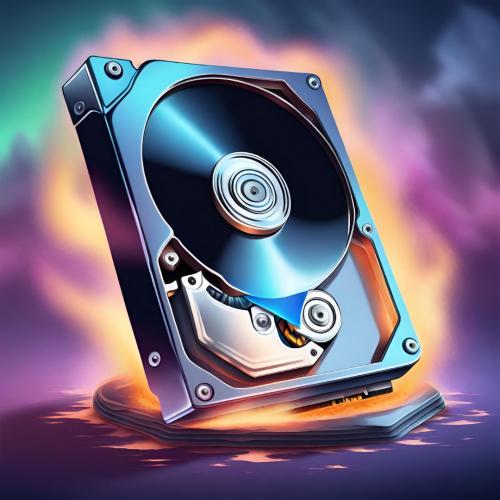How do I Free up Storage on my Hard Disk Securely?

Managing storage space on our hard drive is important for maintaining system performance. Whether our hard drive is running out of space or we just want to delete unnecessary or repeated data stored on it, what is the best way to free up storage?
In this article, we will discuss when and how we should free up space on our hard drive and what the secure way is.
When should we free- up space on our hard disk?
Freeing up hard drive space, whether it is hard disk or SSD, is a task that should be undertaken regularly and actively to maintain optimal system performance and prevent storage-related issues. Here are key scenarios and indicators that suggest it's time to consider freeing up space on our hard drive:
- Low Disk Space Warning: When our operating system notifies us of low disk space, it's a clear indication that action is needed. Ignoring these warnings can lead to performance issues and data loss.
- Slow down System: If the computer has become noticeably slow in performing routine tasks, it could be a sign that the hard drive is nearing its capacity.
- Frequent Crashes or Freezes: Insufficient hard drive space can contribute to system instability, leading to frequent crashes or freezes.
- Inability to Install Updates or Applications: When the system struggles to install updates or new applications due to insufficient space.
- Difficulty Saving or Managing Files: If you face difficulties when saving files or organizing data, it may be a sign that your hard drive is reaching its limits.
Steps to Freeing up Hard Drive Space Securely
Here's a secure, step-by-step guide to freeing up storage. By following these steps, we can confidently and securely free up storage space.
Step 1. Back-Up Your Data
Before making any changes, make sure that your important data is backed up. Use an external hard drive or cloud storage to protect important files in case of accidental deletions or issues during the cleanup process.
Step 2. Identify large files and folders
Use the built-in search tool, such as in Windows File Explorer and in the MacBook Storage Manager, to find large files or folders that you may not need. Consider moving them to an external hard drive or pen drive or deleting them if they are unnecessary.
Step 3. Use an external hard drive
For files that you don't need on your desktop or laptop regularly, consider using external storage devices. This not only frees up space on your hard drive but also provides a secure backup option.
Step 4. Uninstall unused programs
Go to the Control Panel (Windows) or Applications (MacBook) and uninstall programs that you no longer use. This not only frees up space but also enhances smooth system operation.
Step 5. Delete temporary files
Use the built-in disk cleanup tools on your operating system. On Windows, use Disk Cleanup, and on a MacBook, use Storage Management. These tools help remove temporary files that pile up over time.
Step 6. Empty Your Browser
Regularly clear your browser's cache, cookies, and temporary files. Over time, these files accumulate and can take up a significant amount of space on your hard drive. Additionally, clean the search history as well.
Step 7. Securely delete sensitive Data
If you have sensitive or confidential data, use secure deletion tools to ensure that the information is permanently and securely removed from your hard drive. Or if your data is very sensitive, a data sanitization service is another option for assured data destruction.
Step 8. Empty the recycle bin or Trash
After deleting files, don't forget to empty the Recycle Bin (Windows) or Trash (Mac). These bins still occupy space until they are emptied. Before deleting, finally, just confirm that any important files are in the recycle bin. If you find any, restore them immediately.
Final Words
Last but not least, instead of waiting for issues to arise, we should consider regular maintenance on our computers. Make a schedule for periodic cleanup sessions, during which we clean up unimportant data and repeated files on our hard disk. This can be monthly or quarterly, depending on your computing habits.
If your data is very sensitive or you want to clean up a huge amount of hard disk and the purpose is compliance or data security, it is advisable instead to try DIY and get help from professionals for assured data sanitization like Techchef Data Recovery.
Techchef has provided up to 100% guaranteed data erasure and data destruction, disk degaussing, and onsite data erasure services for many years, with assurance of data security throughout the process.
Facing data loss or want a data sanitization service? Consult our experts by giving us a call at 1800-313-1737.
Post Your Ad Here
Comments